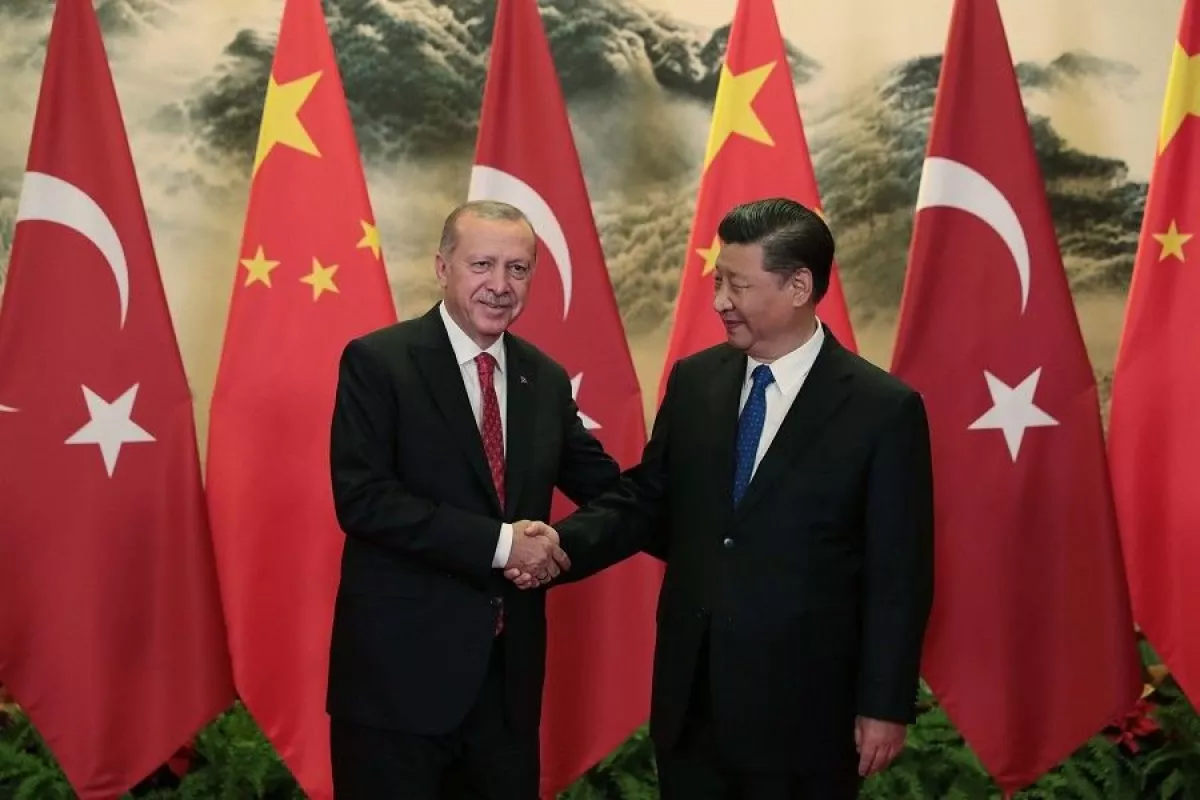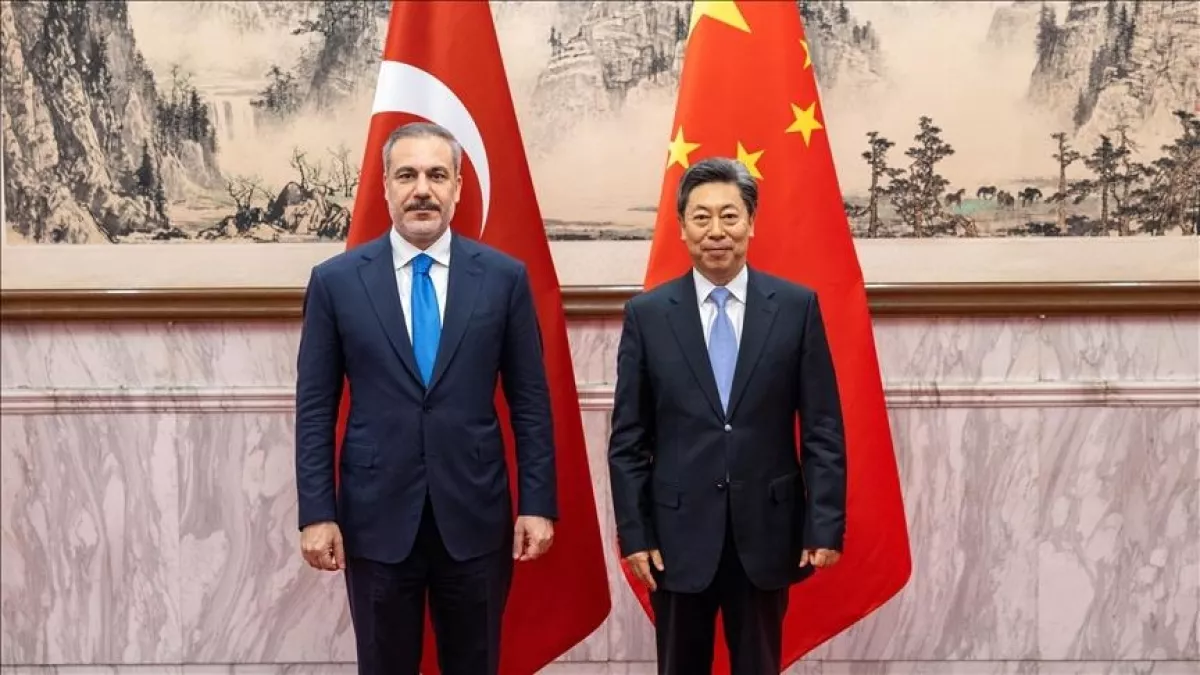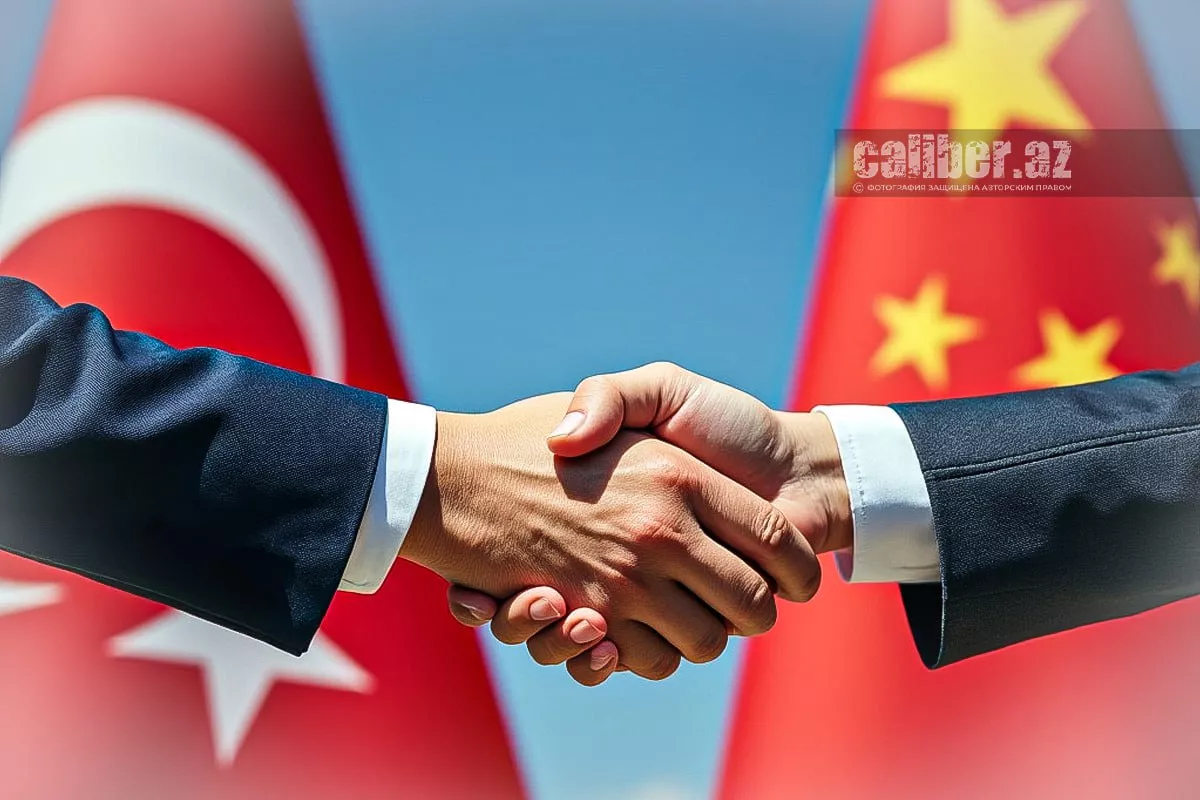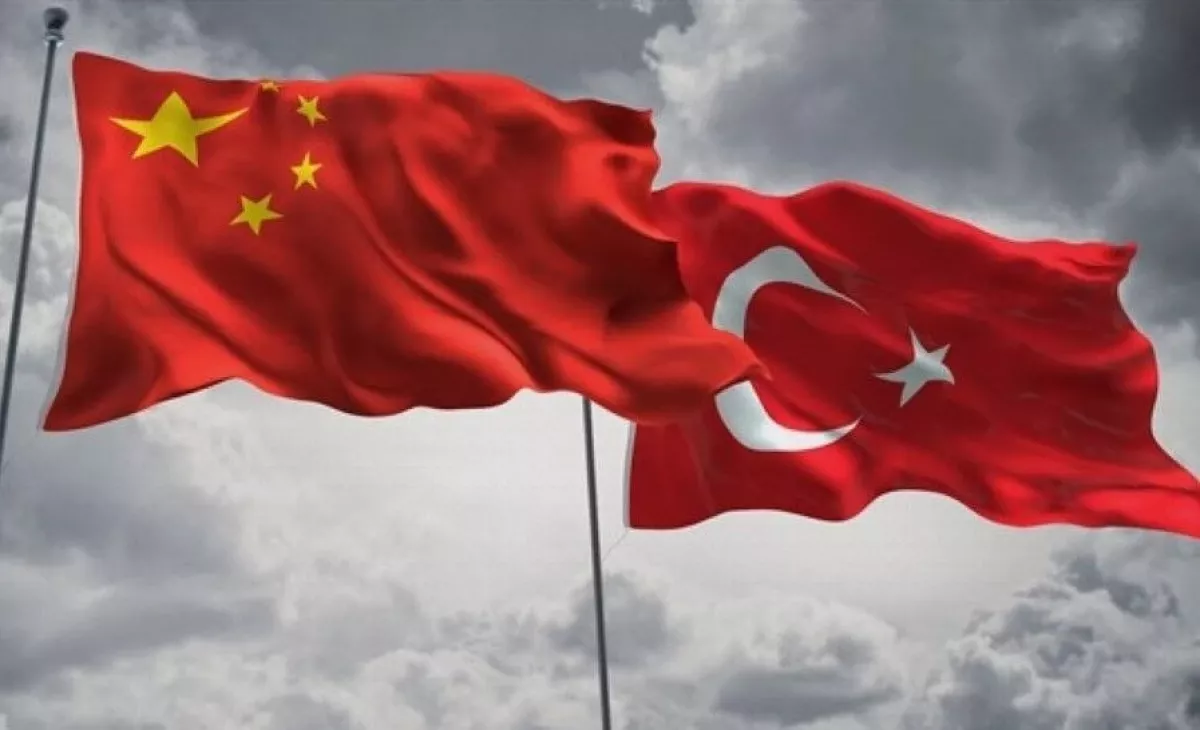Turkish-Chinese partnership: Philosophy of new world order Bridging continents
Ankara has hinted at an upcoming meeting between Turkish President Recep Tayyip Erdoğan and Chinese leader Xi Jinping. What areas will drive the further rapprochement of these two powers, and what challenges remain to be addressed?
The "Beijing–Ankara" axis
Following the recent BRICS summit, the President of the Republic of Türkiye, Recep Tayyip Erdoğan, spoke about the possibility of meetings with the Chairman of the People's Republic of China, Xi Jinping. President Erdoğan stated:
"Our ties with China are deeply rooted in history. We are the heirs of two great civilizations that have developed while influencing each other. We are building our relations on these historical connections and working to create new ones. China is an exceptionally influential country in global politics and trade. We can take new steps to enhance our relations at the level of strategic partnership..."
According to President Erdoğan, a visit by the Chinese leader to Türkiye may take place soon, to be followed by a reciprocal visit to China.

Today, relations between Ankara and Beijing are at their peak. China has become Türkiye's number-one economic partner in Asia and ranks third in its trade with other countries worldwide. In 2023, the total trade turnover between China and Türkiye exceeded $48 billion, a figure twice as high as in 2015. Notably, in 2000, Turkish-Chinese trade barely surpassed $1 billion.
A significant milestone came in 2010 when China and Türkiye signed a strategic partnership agreement. In 2013, the Chinese Belt and Road Initiative emerged, followed by a 2015 memorandum aligning the Belt and Road with Türkiye's Middle Corridor logistics initiative. Trade between the two nations surged further after President Erdoğan's visits to China in 2015 and 2019.
Currently, mutual visits and working-level contacts between Turkish and Chinese officials have intensified even more. In May 2024, Korhan Kurdoğlu, Chairman of the Turkish-Chinese Business Council under the Foreign Economic Relations Board (DEIK), visited China and held discussions, including on Chinese investments in artificial intelligence (AI) technologies in Türkiye. In June, Turkish Foreign Minister Hakan Fidan visited China, referring to the two nations as the "engines of Asian prosperity."

In July, during the Shanghai Cooperation Organization (SCO) summit in Astana, Turkish President Erdoğan met with Chinese leader Xi Jinping. Later, in November 2024, Turkish Finance Minister Mehmet Şimşek paid an official visit to Beijing.
However, as these relations evolve on the ground, some issues require certain adjustments. Previously, in an interview with Hurriyet Daily News, DEİK President Nail Olpak expressed concerns that the Belt and Road Initiative might affect the interests of some Turkish exporting companies. This issue is currently being addressed through a specially established Turkish-Chinese working group dedicated to harmonizing the Belt and Road initiative with Türkiye's Middle Corridor.
Turkish-Chinese industrial zone
Today, the priorities in Turkish-Chinese economic relations include investments and industrial development, balanced bilateral trade, energy and green transformation, as well as digital technologies and artificial intelligence (AI). Partnerships are also expanding in logistics, transportation, real estate, healthcare, culture, education, and tourism.
During the 2nd Turkish-Chinese Business Conference in November 2023, representatives of Turkish business circles positioned their country as a key investment hub. Their reasoning was clear: Türkiye is the most populous and youthful nation in Europe. With a population of 85 million, it has the potential to become the largest consumer market in the region.
In the realm of industrial investments, the automotive industry is witnessing significant development, particularly with China's renowned electric vehicles. This year, at least six Chinese car manufacturers have explored opportunities to establish operations in Türkiye. In July 2024, China’s leading electric vehicle producer, BYD, signed an agreement to open a factory in Manisa. BYD committed to investing $1 billion, creating 5,000 new jobs. Additionally, Turkish firm TOGG has partnered with Chinese company Farasis to produce batteries for electric vehicles. Other Chinese corporations, including Chery, SAIC, and Great Wall, are also preparing to launch production facilities in Türkiye.
Another key area of cooperation is mining. Two years ago, the world’s second-largest rare earth metal deposit was discovered near Eskişehir. These resources are critical for electric vehicle production. In mid-October this year, Türkiye and China signed a mining cooperation agreement, further strengthening ties in this vital sector.
China has made significant investments in several global infrastructure projects in Türkiye. Notable examples include the construction of the Marmaray underwater railway tunnel, the Eurasia Tunnel, the Yavuz Sultan Selim Bridge connecting Europe and Asia, and the Çanakkale Bridge. Major Chinese investments have also targeted the transportation and telecommunications sectors.
In 2017, the Baku-Tbilisi-Kars railway—one of the key components of the Middle Corridor—was completed with substantial Chinese backing. In telecommunications, ZTE Turkey has partnered with Türk Telekom and Turkcell on projects such as fixed and mobile networks, including 5G base stations and microsatellite systems. Meanwhile, Chinese tech giant Xiaomi manufactures 5 million phones annually in Istanbul. Currently, around 1,200 Chinese companies operate in Türkiye.

Another monumental initiative is the Istanbul Canal, a $13 billion logistics project spearheaded by Turkish President Erdoğan. The canal, which will link the Black Sea and the Sea of Marmara parallel to the Bosphorus, has attracted significant investment from China, making it one of the project’s largest financial contributors.
Energy of cooperation
Looking ahead, investments in green energy are seen as one of the most promising areas of collaboration. In 2023, China produced 80% of the world’s solar panels and 60% of wind turbines, while Türkiye was Europe’s largest solar panel manufacturer.
During his mid-October visit to China, Turkish Energy and Natural Resources Minister Alparslan Bayraktar met with his Chinese counterpart Wang Guanghua and executives from major energy companies SPIC and nuclear giant CNOOC. The discussions centred on investments in renewable and nuclear energy. Notably, Türkiye and China signed a nuclear energy cooperation agreement back in 2016.
China has already made significant investments in Türkiye's thermal power sector, including the $1.7 billion coal-fired Emba Hunutlu Power Plant. Talks are currently underway regarding the construction of Türkiye's third nuclear power plant, planned for the Thrace region.
Gateway to Europe
Türkiye holds dual importance for China as both an investment destination and a trade gateway to Europe. As a member of the EU Customs Union and with trade agreements with 28 countries, Türkiye offers China a strategic advantage, particularly in light of the tariff war the European Union is waging against Chinese goods, following the lead of the United States. This status makes Türkiye a convenient springboard for China to access international markets.
However, the issue of trade balance remains critical. Currently, imports from China far exceed Türkiye’s exports to China. In 2023, Türkiye exported goods worth $3.2 billion to China, representing only 1.3% of its total exports.
China’s primary exports to Türkiye include mobile phones, engines, electronic equipment, mechanical devices, and vehicles. Meanwhile, Türkiye’s exports to China consist of marble and travertine, lead, chromium, copper, iron, zinc, and natural borates. The agricultural market in China is expanding rapidly, and Türkiye, one of the world's top ten agricultural suppliers, aims to significantly increase its presence there. Additionally, Türkiye's Çimtaş steel plant in Ningbo is successfully operating to meet local market demands.

Cultural and tourism exchanges between China and Türkiye are also growing. China is hosting the "Turkish Culture Year," while Türkiye is celebrating "Chinese Culture Year." The year 2018 was declared the "Year of Tourism in Türkiye," during which the number of Chinese tourists surged to 394,000, a 59% increase compared to the previous year. Additionally, the Confucius Institute has been established in Türkiye, offering students benefits and scholarships for admission to Chinese universities.
In 2023, China provided emergency assistance to Türkiye following the devastating earthquake, further strengthening the bonds between the two nations. In April 2024, the world-renowned dance troupe Anadolu Ateşi embarked on a tour of China, further deepening cultural ties.
In international politics, Türkiye and China also share common views on issues such as the Gaza crisis and the war in Ukraine. Both sides emphasize their joint commitment to global peace and justice. Security issues, including the fight against extremism, terrorism, and threats to sovereignty, are key aspects of their cooperation. Ankara and Beijing support each other's territorial integrity and condemn any manifestations of separatism. President Recep Tayyip Erdoğan has repeatedly expressed his support for the equality of Uighur Turks as citizens of China and has opposed those attempting to foster separatist activities against China from Turkish soil.
Today, the Turkish-Chinese partnership is not just an economic project linked to the global Belt and Road Initiative, which now encompasses a third of the world's population and 40% of global GDP. It also represents a philosophy of a new world order, where interaction and cooperation are meant to ensure common interests and justice for all. It is no coincidence that the growing ties between Türkiye and China have caused discomfort among former global powers. Without a doubt, the upcoming meetings between the leaders of Türkiye and China will elevate these relations to new heights.








